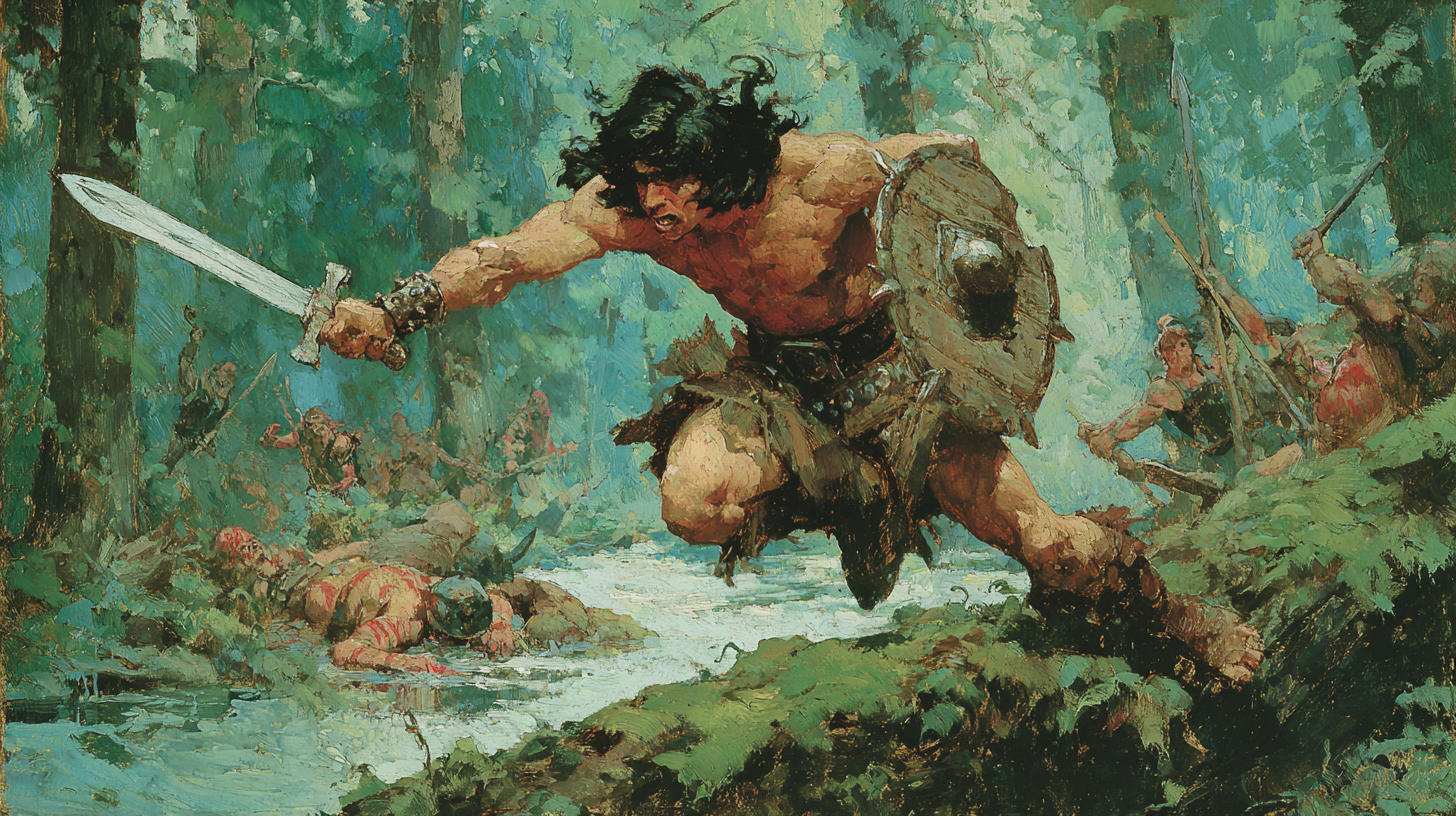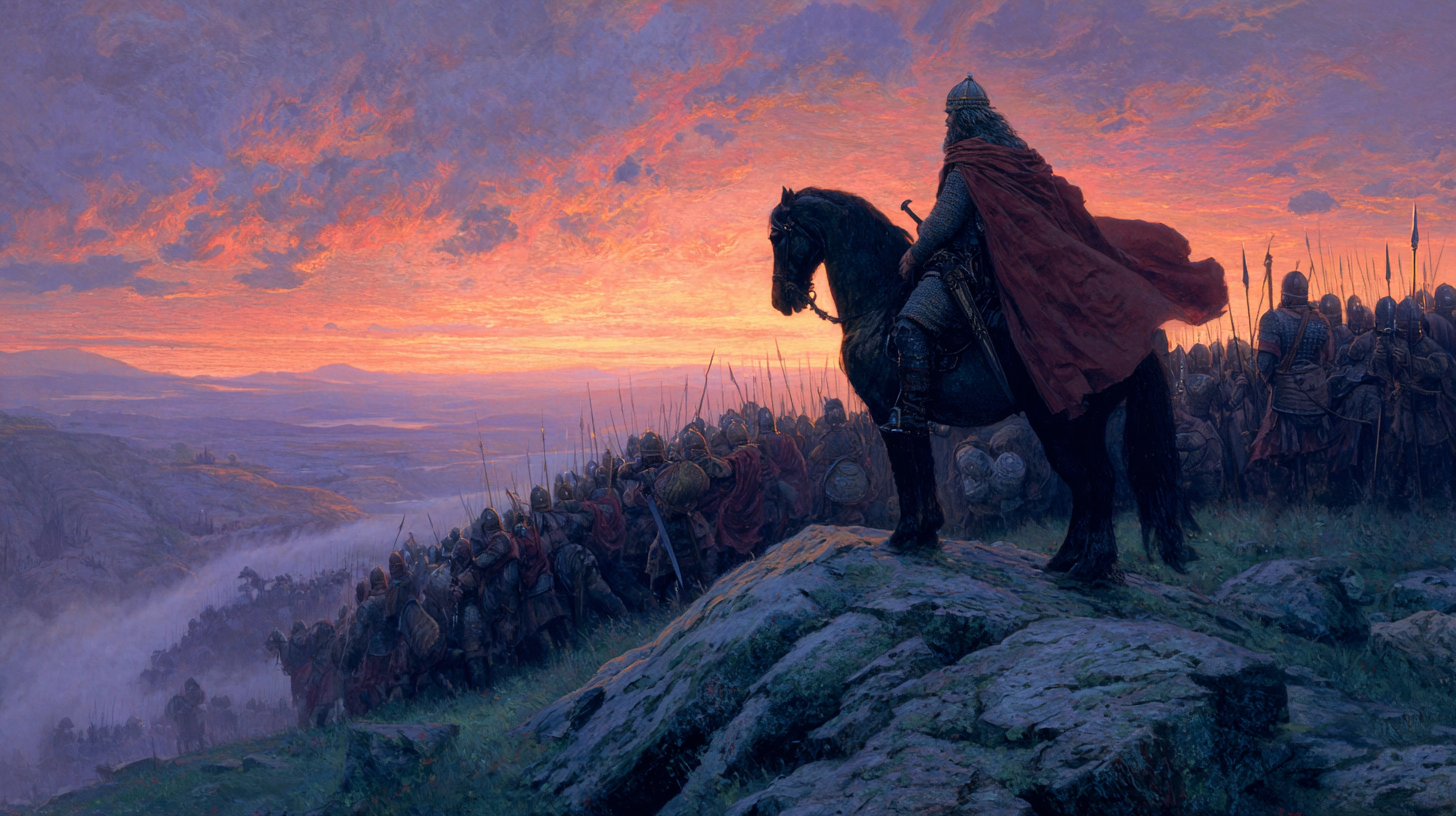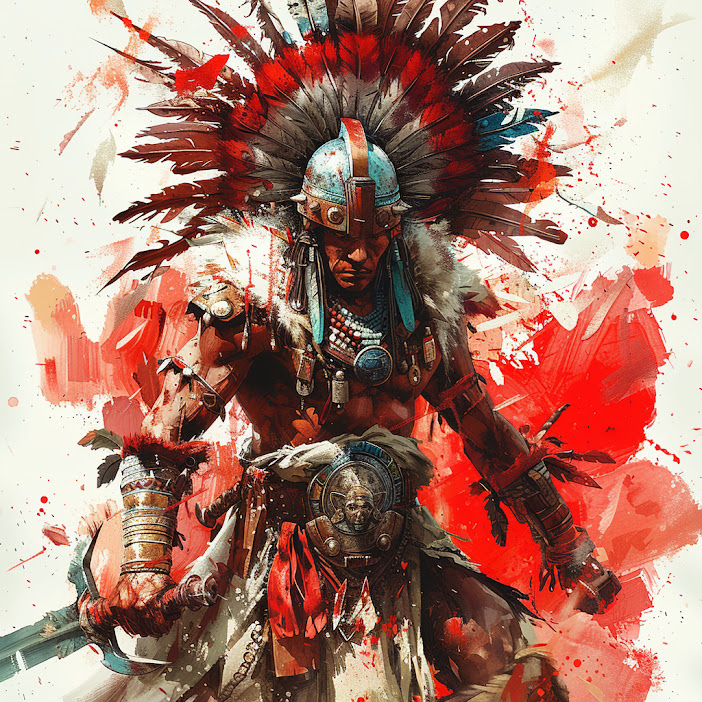
The image of the modern “barbarian” in most tabletop RPGs has devolved into cliché. He’s often portrayed as a drooling slab of muscle—violent, dumb, and easily manipulated. It’s a tired trope, rooted more in the mockery of masculinity than in any real mythic tradition. This caricature bears little resemblance to the archetypal barbarian that birthed the genre—Conan the Cimmerian, as imagined by Robert E. Howard.
Howard’s Conan is not the lumbering oaf or brain-dead berserker that later adaptations and RPG stat blocks would have you believe. He’s not a man-child with rage issues. He’s a thinking warrior—a tactician, a spy, a linguist, and a leader. In fact, Conan’s cunning is every bit as sharp as his sword.
And maybe it’s time we asked why this dumbing down of strong men persists in pop culture. Why the relentless push to mock and soften men who rely on their bodies, their instincts, their grit? I had a junior high science teacher who had once played for the Denver Broncos. You’d expect a meathead—what you got was a man of discipline, intellect, and precision. I think about that every time I see a player run a barbarian like a walking punchline. This cliché isn’t just lazy—it’s corrosive.
Below, you’ll find sourced examples that shatter the “dumb brute” narrative. These moments from Howard’s original works show Conan not as a joke, but as a complete man. Fierce, yes. Violent, certainly. But always calculating, alert, and adaptable.
Conan isn’t the kind of man to kick down the front door unless it’s the smartest move. When he hears of the mythical “Elephant’s Heart” jewel, he chooses infiltration over brute force, slipping over walls and through gardens “as silently as a panther” (source). He avoids the main guards and finds the weakest point in the tower’s defenses.
When he meets Taurus of Nemedia, the infamous thief, Conan doesn’t fight him—he allies with him. They use black lotus powder to kill magical lions and scale the tower wall together (source). Later, Conan speaks with the alien Yag-Kosha and chooses a path of revenge and liberation over looting. He uses the creature’s heart to kill the sorcerer Yara, collapsing the tower as he escapes (source).
That’s not the playbook of a dumb savage—it’s espionage, empathy, and execution in perfect balance.

Conan is no stranger to subtlety. In this novel, dethroned and hunted, he moves like a ghost through his own kingdom—donning the armor of soldiers, slipping past enemies as an executioner, even escaping Tarantia disguised as a mortician (source). His understanding of social cues and hierarchies allows him to navigate a world of spies and traitors.
At one point, he disguises himself as a slave, kills a masked priest, and infiltrates the temple of Set (source). He watches guard patterns, studies rituals, and moves like a trained infiltrator.
Even when captured, he doesn’t wait to be rescued. He slaughters a man-eating ape and incites a slave revolt to commandeer a pirate ship (source).
In this tale, Conan starts locked in a cell for a drunken brawl. When the jailer brings food, Conan bludgeons him with the bone of beef he’s just been handed and breaks out (source). It’s pure improvisation—using whatever’s available, seizing the moment.
He then sneaks through sewers and across rooftops to meet Murilo. Later, when caught in a labyrinth full of traps and a killer ape named Thak, Conan doesn’t rely on brute strength alone. He smells Murilo before seeing him, and brokers a three-way alliance between enemies just to survive (source). That’s situational awareness and diplomacy, not just muscle.
When a dancing girl is made to pose as the goddess Yelaya, Conan immediately spots the ruse by her Corinthian accent and calls her by name (source). He’s not fooled by theatrics—he listens, discerns, and cuts through lies with clarity.
Later, his stealth allows him to discover hidden passages and ancient secrets while avoiding detection in the temple (source). The man moves like a thief and thinks like an archaeologist.
In “Black Colossus,” Conan commands an army. He’s a battlefield strategist and a charismatic leader—“a cunning strategist,” as one reviewer puts it (source). He inspires men, reads terrain, and adjusts tactics mid-battle.
In “Beyond the Black River,” he’s in the wilderness, leading settlers and guerrilla forces against the Picts. He understands their customs and uses it against them (source). His warfare is never chaotic—it’s ruthless, calculated, and effective.
Sorcerers don’t scare Conan. He knows he can’t brute-force his way through a fortress of wizards, so he kidnaps a princess to gain leverage and infiltrates their mountain stronghold under the cover of a twisted political game (source).
The same review points out that Conan is “articulate, strong and nimble”—completely at odds with the pop culture moron people keep trying to sell us (source).
According to Tropedia, Conan speaks, reads, and writes multiple languages. He can decipher ancient scripts, pass in foreign lands, and understand enough customs to exploit them.
Even DMR Books, comparing Howard’s Conan to the historical pulp heroes of Harold Lamb, acknowledges that while Conan favors direct action, “he was not stupid” (source).
Conan climbs walls like a thief, leads armies like a warlord, deciphers lies like a detective, and infiltrates temples like a spy. He doesn’t wait for problems to resolve themselves—he solves them. Often through blood, yes, but just as often through thought.
The idea that strong men must also be stupid is a modern corruption—one that deserves to die. Howard gave us a mythic figure who blends ferocity and intellect in equal measure. He is not ashamed of his power, nor does he shrink from using his mind.
So no, men shouldn’t be playing dumb barbarians at the table. Not if they’re modeling their characters after the original.
Conan was never a joke.
It’s time to stop pretending he was.


